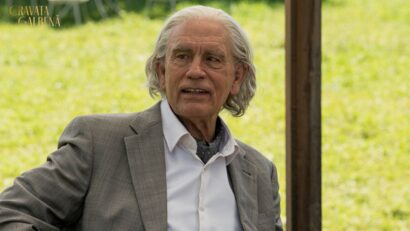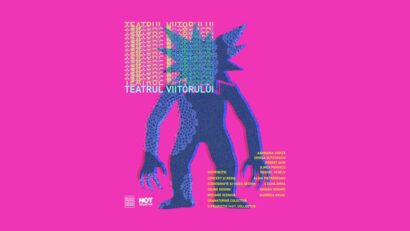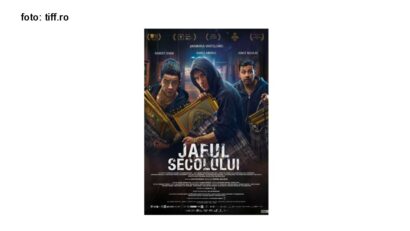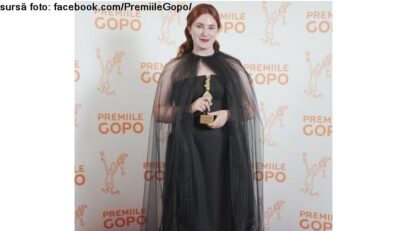Romania’s cultural sector and European trends
Insula 42, jointly with the French Institute and Goethe Institut in Bucharest, launched the “European Incubator meetings

Monica Chiorpec, 06.06.2020, 12:07
Insula 42, in a partnership with the French Institute and Goethe Institut in Bucharest, have launched a series of “European Incubator meetings. A first online session, chaired by Corina Şuteu, was attended by Hélène Roos, head of the French Cultural Institutes in Romania, and Joachim Umlauf, director of the Goethe Institut Bucharest.
The participants, joined by representatives of the Cluj Cultural Centre, discussed both the problems facing the culture sector in Romania in the wake of the current healthcare crisis, and means of sustaining and even strengthening the cultural partnerships with France and Germany in this context.
Hélène Roos says the cultural networks formed and developed over the past few months are the biggest gain for the cultural institutes in Romania:
Hélène Roos: “We are talking a lot about the negative effects of the isolation, but one of the effects is that our team is working a lot more in a network of institutes. We have set up a national network, and I believe the word “network will be a recurrent term from now on. As regards our initiatives, we launched a programme called FrenchMania, with virtual presentations, online or telephone meetings with the youth interested in studying in France.
Cultural partnerships between Romania and France or other European countries carried on throughout the isolation period. Events switched to the online medium, and debates were the main strategy used by stakeholders in cultural exchanges and international projects to work out solutions.
Hélène Roos: “A first priority is to support French-Romanian partnerships, our partners in festivals, and a second one is to support civil society in joining us. We work to support the education sector, which went online and carries on in spite of the crisis. Fear paralyses. And while concerns are only natural, having a project to focus on enables us to overcome our fear and to find solutions.
The French Institute in Bucharest carried on its projects and programmes online. Just like elsewhere in Europe, Hélène Roos invites Romanian intellectuals as well to join the talks seeking new ideas to support culture:
Hélène Roos: “The future will be shaped by the practices we launch today. We must adapt and adjust, and this experience will help us rethink our future projects. We need Romanian, French, German, European intellectuals to discuss a possible cultural model for today and tomorrow. And to be able to do this, we need to be united, to work together.
Joachim Umlauf runs the “Goethe Institut in Bucharest. During the roundtable organised by Insula 42, he discussed the impact of the current crisis on civil society. Just like Hélène Roos, he believes partnership to be the key concept for overcoming this delicate period:
Joachim Umlauf: “We notice that the consequences of this crisis deeply touch civil society, in economic and social terms. Hopefully, these consequences will not be very harsh, although they will certainly be difficult. One of our tasks is to create cohesion in society and to support the cultural sector. We want our Romanian partners to be able to carry on, because we have been working together for many years, in a close partnership between France, Germany and Romania.
Language classes are one of the core programmes of a cultural institute, and just like all cultural institutes in Romania, “Goethe Institut is also facing budgetary constraints that affect its activities. Nonetheless, says Joachim Umlauf, for the time being the priority is to preserve both the full team, and the relevance of the institution he is heading, in a society hit by crisis.
Joachim Umlauf: “There is an economic problem as well, because these language classes used to balance the budget of the institution. We had to give up certain programmes and cultural projects that secured revenues for the institution. We had no choice. This year we had to cut the budget earmarked for cultural programmes by nearly 40%, to be able to keep our full team, to continue to pay our teachers, to keep our students and to make sure everybody is okay.
Obviously, online interaction alone cannot replace direct, human interaction. Joachim Umlauf says it is particularly important for people to find a balance between this new norm, triggered by the new state of affairs, and the old cultural practices:
Joachim Umlauf: “In the future we need to strike a balance between the digital format we are testing now and the old face to face interactions. Clearly, in terms of the environment and mobility, it will be good for the Romanian, French and German partners to be able to communicate via Skype or other platforms. But on the other hand, now as well as after this crisis, the need for physical contact is and will be tremendous.
Romania embraces the latest best practices and strategies aimed at restarting the culture sector across Europe. And partnership, dialogue and finding common solutions remain vital.
(translated by: Ana-Maria Popescu)






























